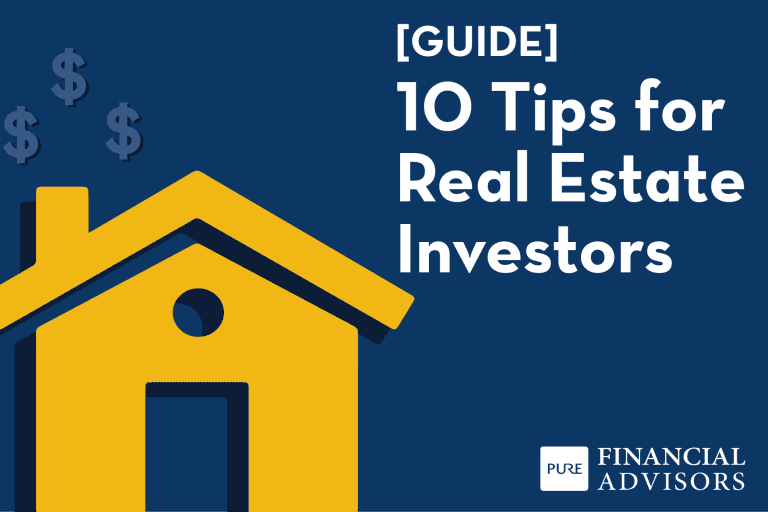Chances are your home is your biggest investment. How can you make the most of your home in retirement? Financial professionals Joe Anderson and Alan Clopine discuss the benefits of downsizing and dispel the myths about reverse mortgages.
Transcript:
Joe: Real estate is a very interesting asset class, and a lot of us already own real estate. And so, when you look at it should we utilize some of that real estate that you currently own in your primary residence? There’s a couple of ways to do that. You can downsize your current residence, and say hey, I have this bigger home maybe I’d downsize into a condo; maybe it’s just a one or two bedroom, now the kids are out of the house. Or if you want to stay in the house, potentially there’s something that you can do, called a reverse mortgage. Al, let’s talk a little bit about downsizing and downsizing.
Alan: Yeah, and downsizing Joe, that’s an important concept, and I think what happens is as you mentioned I mean for folks in Southern California or any high-cost real estate area, you probably end up with real estate being your biggest asset, as we just saw. And a lot of financial planners say, don’t utilize it and we’re going to look at other things, and we’re going to tell you if you live at a high-cost area you don’t necessarily want to ignore it. Now downsizing, we know from the stats, a lot of you don’t want to move, but the truth is if that’s for the majority of your equity is you at least may want to consider it and downsizing simply means moving to a cheaper place in your current locale or Joe maybe moving to another cheaper place out outside your high-cost area. The example is pretty staggering as to what it can mean.
Joe: Here’s an example, $700,000 home, alright let’s say you have a mortgage here of a couple hundred thousand dollars. You downsize, you say you know what we want to get rid of this big house and we’re going to purchase something for about $400,000. We get rid of this mortgage, alright. We’ve got some home equity here. Right now, the home equity is 400,000 because you paid cash, you got rid of your mortgage payment and guess what? You’ve freed up another $100,000. So if you do the math here, right. So you’ve got rid of this mortgage payment of $1,400 a month plus you added another $100,000 of liquidity. So if we use that four-percent rule that we used before that could generate another $4,000 of income, but then if I look here, you freed up another one close to $17,000- $18,000 plus four. This could be $21,000 of additional cash flow, just like that, just by downsizing into a little bit smaller home. Just think about it. Maybe you have a smaller home, it’s a little bit more cramped, but you’ve got a lot more cash to get the heck out of the house, right. You can travel, you can do different things, spoil the grandkids, all sorts of stuff.
Alan: Yeah and I think that’s important because a lot of folks feel like they’re stuck and the truth is if you look at your real estate maybe in a little different way then you can perhaps have a little bit better retirement. And of course, then you’re going to be considering about taxes because a lot of people think it’s the old rule, once in a lifetime exclusion on real estate, that that’s been gone for 20 years. So right now, we have a section 121 exclusion, which simply means this, if you sell your home, you’ve lived in it for a couple of years, and and owned it for a couple of years out of the last five then you get a $500,000 exclusion for a couple, and a $250,000 exclusion for an individual. So realize that in this example we just did, if you had a home for $700,000, maybe you bought it for 300,000. There’s maybe a $400,000 gain, but if you’re married you get an exclusion, you pay zero tax on that.
Joe: Another thing that you might want to consider too if you want to stay in the larger home and you have that mortgage, and you may want to get rid of that mortgage payment, or maybe it’s debt free, and you’re looking to generate additional cash flow you could do a reverse mortgage. There’s something that’s called a HECM, a home equity conversion mortgage, right. So this is not your conventional mortgage where you’re paying a mortgage payment to it, it’s just in reverse. Where you could take capital or get a payment stream for the rest of your life, all it does is build up that debt with inside the equity of your home that you’ll never pay back. Once you pass or sell the home then, right, you just take whatever that note is, minus the equity, and then that would go to the heirs, or that’s what you would receive as cash as you purchase another home. There’s also private reverse mortgages here too. So if you don’t want to conform with the HUD within the HECM then you could do something a little bit different Al, and these are a little bit bigger a little bit more nonconforming, but there’s always opportunity for people if they want to take a look.
Alan: Well there are and so when it comes to the conforming loans you’re somewhat limited in how much you can borrow and typically it’s based upon the HUD rates for your area, in terms of the maximum loan. And you’ve got to have usually about 50 percent loan to equity or 50 percent equity I should say at least in your property to make this work. Probably most importantly though, you’ve got to be 62 years of age, you need to live in the home as your primary residence, and you need, if you have debt on the home, this home equity, I mean this reverse mortgage needs to pay off that debt.
Click here to watch the full Get Real About Real Estate in Retirement episode









